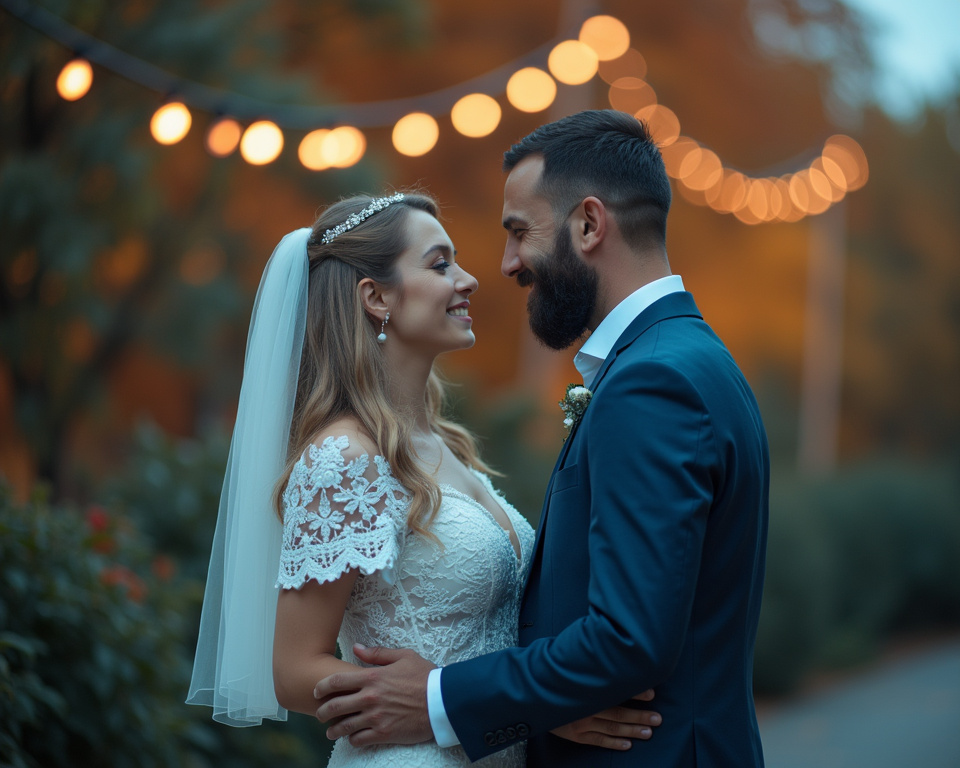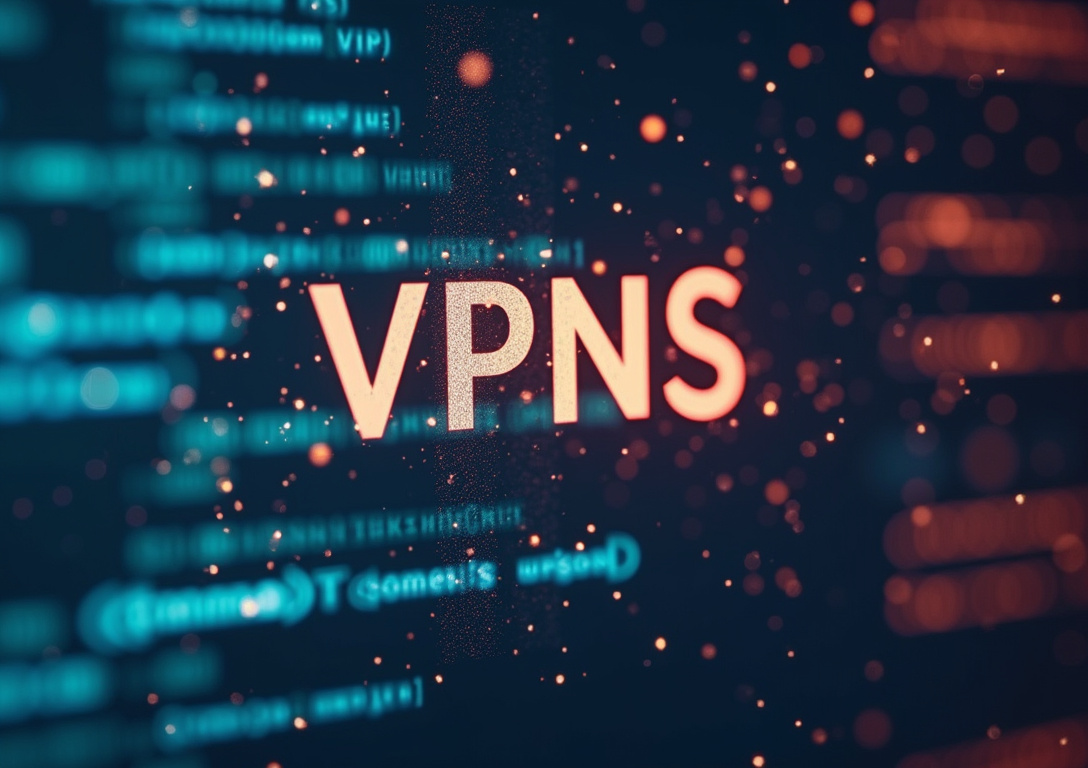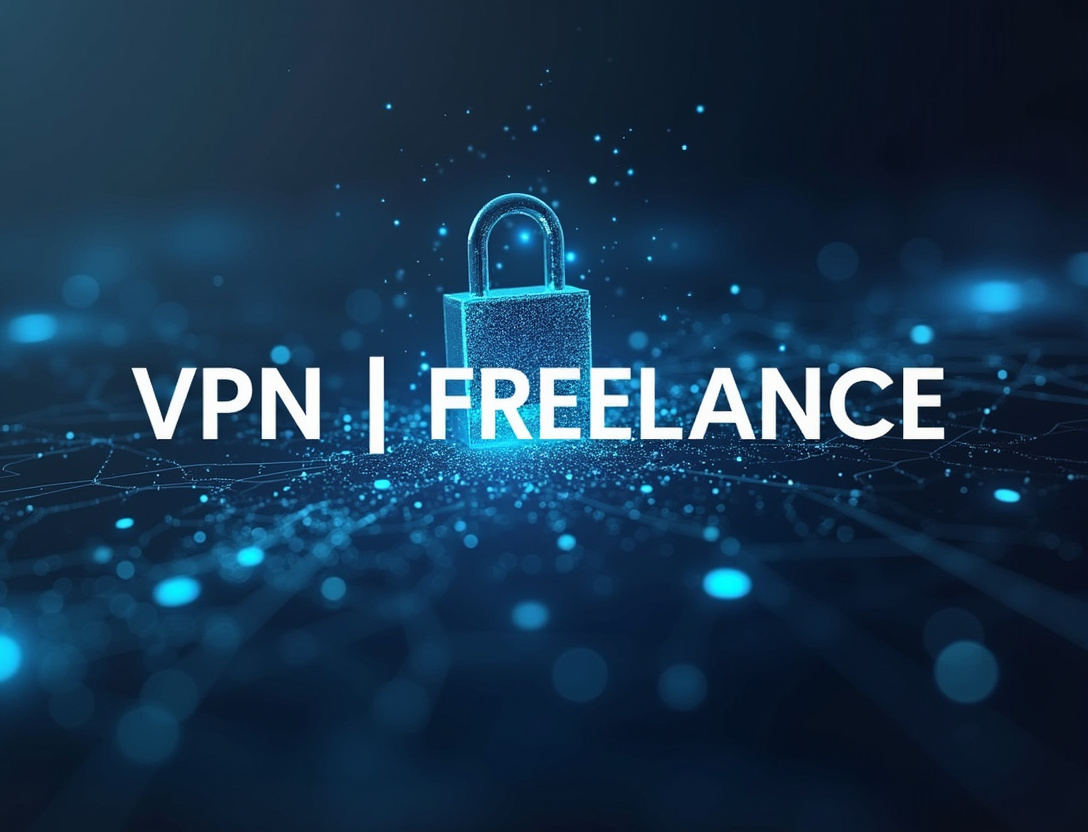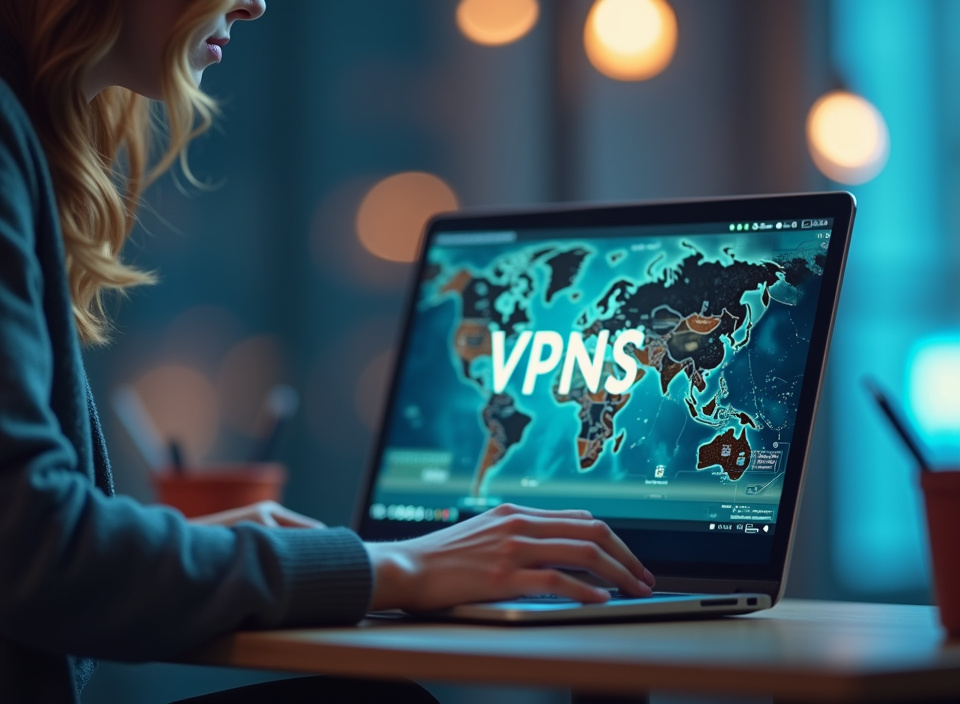VPNs for Freelance Videographers: Protecting Project Footage
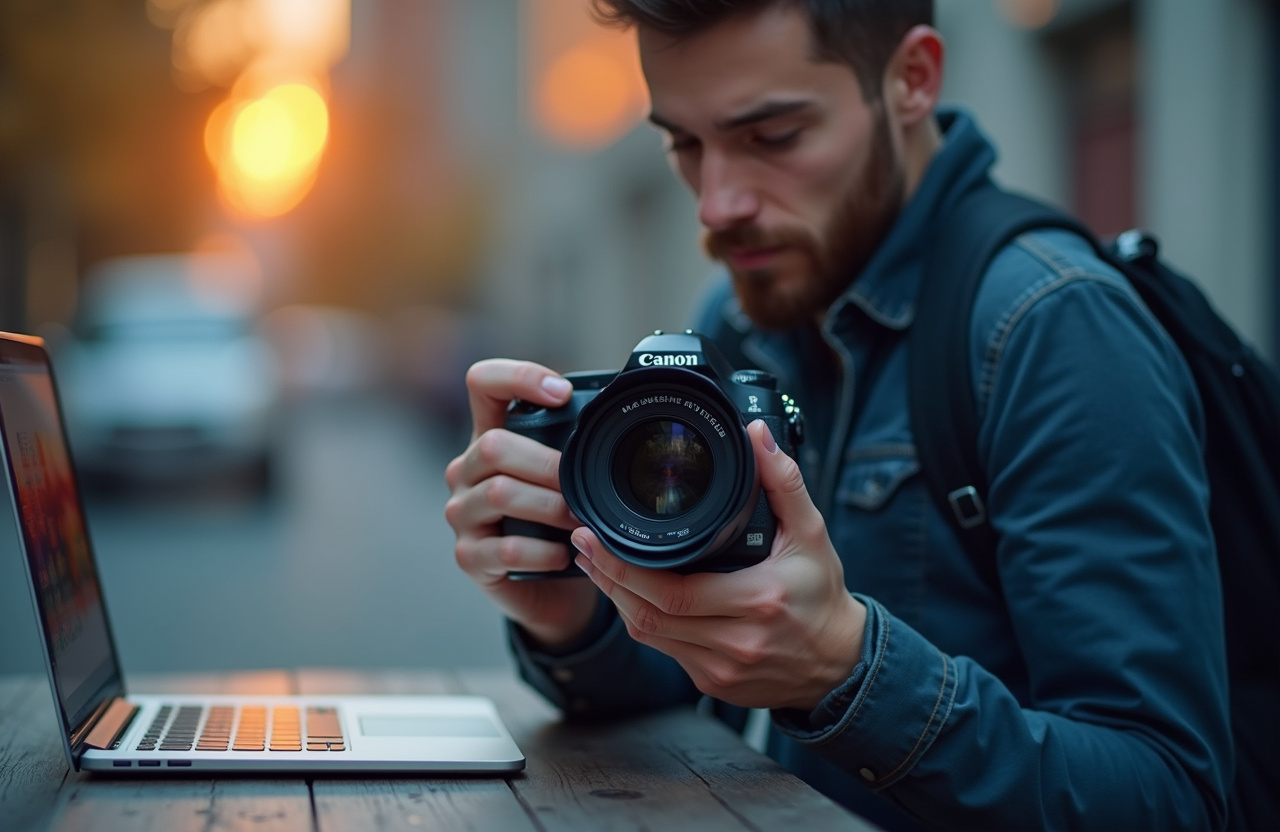
Table of Contents
- VPNs for Freelance Videographers: Protecting Project Footage and Client Interactions
- Enhancing Footage Security: A Multifaceted Approach
- Strengthening Client Interaction Protection: Confidential Communications and Secure Collaboration
- Ensuring Content Safety: Safeguarding Intellectual Property from Theft and Unauthorized Use
VPNs for Freelance Videographers: Protecting Project Footage and Client Interactions
In the competitive landscape of freelance videography, safeguarding valuable project footage and ensuring the confidentiality of client interactions is paramount. As freelancers, videographers often operate with limited resources and technical support, making them particularly vulnerable to cybersecurity threats. This article delves into the critical role of Virtual Private Networks (VPNs) in mitigating these risks, providing freelance videographers with the tools and knowledge necessary to protect their intellectual property, maintain client trust, and foster a secure working environment.
A `videographer VPN` is no longer a luxury, but a necessity for professionals seeking to thrive in an increasingly digital and interconnected world. It serves as a digital bodyguard, shielding sensitive data from prying eyes and ensuring the integrity of the entire videography workflow, from pre-production planning to final delivery. The transition to remote work and cloud-based collaboration has amplified the security challenges faced by freelance videographers.
With project footage often stored on personal devices, shared via public Wi-Fi networks, and accessed by multiple collaborators, the potential for data breaches and unauthorized access is constantly present. Imagine the devastating consequences of a hard drive failure resulting in the permanent loss of irreplaceable footage, or a ransomware attack encrypting critical project files, holding them hostage for a hefty ransom. These are just a few of the potential nightmares that can be averted with a properly implemented security strategy, with a VPN serving as its cornerstone.
Beyond outright theft or malicious attacks, freelance videographers must also be mindful of unintentional data leaks and privacy violations. A simple misconfiguration of cloud storage settings, or the accidental sharing of sensitive client information via an unsecured email server, could have serious repercussions, damaging reputations and eroding client trust. A VPN helps prevent these incidents by encrypting all internet traffic, making it significantly more difficult for unauthorized parties to intercept or access sensitive data.
Moreover, a VPN provides an added layer of anonymity, masking the videographer's IP address and location, making it harder for hackers to target their network and launch tailored attacks. This is particularly important for videographers who frequently work in public spaces, such as coffee shops or airports, where public Wi-Fi networks are notoriously insecure. With a VPN, freelance videographers can confidently connect to these networks, knowing that their data is protected by robust encryption.
In the competitive world of freelance videography, a single security breach can be enough to ruin a career. Clients are increasingly discerning about the security practices of the freelancers they hire, and those who can demonstrate a strong commitment to data protection are more likely to win contracts and build long-term relationships. By investing in a VPN and incorporating it into their daily workflow, freelance videographers are not only protecting their assets, but also enhancing their professional reputation and demonstrating their commitment to client confidentiality.
The implementation of a VPN is a proactive measure that shows potential clients that you understand and value security.
Enhancing Footage Security: A Multifaceted Approach
`Footage security` is paramount for freelance videographers, representing the core of their creative output and often embodying significant financial investment. A robust security strategy, with a VPN at its heart, is essential to protect this invaluable asset from a multitude of threats. The benefits of VPNs are multifaceted.
First, a VPN shields the videographer's internet connection from prying eyes, acting as a secure tunnel for all data transmitted. Think of it as a private highway constructed over the public internet, preventing unauthorized access to sensitive project footage during upload, download, and transfer. When transferring large video files, a common occurrence in videography, the risk of interception is heightened, making a VPN an indispensable tool for ensuring secure file transfers.
Second, VPNs bolster security by masking the videographer's IP address, effectively concealing their location and hindering targeted attacks. This anonymization makes it significantly more difficult for malicious actors to identify and exploit vulnerabilities in the videographer's network. In a world where data breaches are becoming increasingly sophisticated, this added layer of privacy is crucial for protecting against cyber threats.
Consider a scenario where a videographer is working on a high-profile commercial project for a major brand. The raw footage, early edits, and client feedback are all highly confidential and must be protected from unauthorized disclosure. Without a VPN, these sensitive files are vulnerable to interception by hackers or competitors, potentially leading to significant financial losses and reputational damage.
A VPN encrypts all data transmitted, effectively rendering it unreadable to anyone without the proper decryption key. This encryption ensures that even if the data is intercepted, it cannot be accessed or used by unauthorized parties. Furthermore, a VPN can protect against man-in-the-middle attacks, where hackers intercept data transmitted between the videographer and their client or collaborator.
By establishing a secure, encrypted connection, a VPN makes it virtually impossible for hackers to eavesdrop on communications or tamper with project files. In addition to securing data in transit, a VPN can also enhance the security of data at rest. Many VPNs offer features such as data encryption and malware protection, which can help safeguard project footage stored on local devices or cloud storage platforms.
By encrypting the data, a VPN ensures that even if a device is lost or stolen, the footage remains protected from unauthorized access. Moreover, a VPN's malware protection can prevent malicious software from infecting the videographer's system and compromising the integrity of their project files. For freelance videographers who rely heavily on cloud storage, a VPN can provide an added layer of security.
By encrypting the connection between the videographer's device and the cloud storage server, a VPN protects against data breaches and ensures that sensitive project footage remains confidential. The use of a VPN also demonstrates vigilance of `content safety` to clients. It exemplifies that the videographer is proactive in keeping their projects from being leaked or stolen.
Strengthening Client Interaction Protection: Confidential Communications and Secure Collaboration
`Client interaction protection` constitutes a crucial aspect of a freelance videographer's professional practice. Building a strong rapport with clients necessitates establishing a climate of trust and unwavering confidentiality. A VPN is instrumental in fostering such an environment, providing a secure channel for communication and collaboration.
By encrypting all online interactions, including emails, video conferences, and file transfers, a VPN ensures that sensitive client information remains private and protected from unauthorized access. Consider, for instance, discussions pertaining to budget allocations, creative direction, or strategically sensitive content – all vital aspects of the videography process. A breach of confidentiality in these realms could severely compromise the client's interests and irreparably damage the videographer's reputation.
The encryption provided by a VPN acts as a shield, safeguarding these interactions from potential eavesdropping or interception. Moreover, a VPN plays a crucial role in mitigating the risks associated with phishing attacks, a common tactic employed by cybercriminals to steal sensitive information. By masking the videographer's IP address and routing their internet traffic through a secure server, a VPN makes it more difficult for hackers to target them with phishing scams.
This is especially important for freelance videographers who frequently communicate with clients and collaborators via email, as phishing emails can often be disguised to look like legitimate communications. By using a VPN, videographers can reduce their risk of falling victim to these scams and compromising sensitive client data. Secure collaboration is particularly important when working on complex video projects that involve multiple stakeholders.
Sharing files and coordinating tasks can be challenging, especially when team members are located in different geographic locations. A VPN can help streamline the collaboration process by providing a secure and reliable channel for communication and file sharing. By encrypting all data transmitted between team members, a VPN ensures that sensitive project information remains protected from unauthorized access.
This allows team members to collaborate with confidence, knowing that their communications are secure and their data is protected. This is especially important for video conferencing, which often involves the sharing of sensitive information such as client feedback, budget details, and creative concepts. A VPN can secure these conversations and ensure that they remain private and confidential, thereby protecting the client's interests.
For those who work with international clients, `client interaction protection` is about more than just digital security; it's also about complying with privacy regulations in different countries. A VPN can help ensure that freelance videographers are meeting their legal obligations by providing a secure and compliant channel for communication and data transfer. By using a VPN, videographers can demonstrate their commitment to client confidentiality and regulatory compliance, building trust and strengthening their relationships with clients around the world.
A videographer using a VPN gives their client peace of mind that their information will remain private, and that only authorized eyes will see it. This reassurance provides the clients with confidence in the videographer and their team leading to more business.
Ensuring Content Safety: Safeguarding Intellectual Property from Theft and Unauthorized Use
`Content safety` is an indispensable imperative for freelance videographers, who rely on their intellectual property as the cornerstone of their business. Protecting valuable video content from theft, unauthorized duplication, and illicit distribution is paramount to maintaining their competitive advantage and safeguarding their livelihoods. A VPN provides a vital layer of defense in this digital age, encrypting data streams and making it substantially harder for malicious actors to access and exploit sensitive video files.
By employing a VPN, videographers can significantly mitigate the risk of their creative works falling into the wrong hands, ensuring both their originality and economic viability remain intact. The benefits of VPNs stretch from pre-production research to the finalization and distribution of the completed project. During research, a VPN allows for anonymous browsing and helps conceal the videographer's online activity.
This protects not only the videographer's information but also valuable creative ideas. One of the most pertinent threats to content safety is the unauthorized access and distribution of pre-release footage. In an age where social media and online piracy are rampant, the leak of unreleased content can have devastating consequences, from devaluing the final product to jeopardizing marketing campaigns.
A VPN provides an encrypted tunnel for all data transmitted over the internet, safeguarding sensitive footage during uploads to cloud storage services, transfers to clients for review, or collaborations with remote team members. This encryption makes it virtually impossible for hackers to intercept and steal video files in transit, providing peace of mind to videographers who handle confidential material on a daily basis. Beyond securing data in transit, VPNs also play a crucial role in protecting against digital piracy.
By masking the videographer's IP address and location, a VPN makes it remarkably challenging for copyright infringers to trace the source of the original content. This added anonymity makes it more difficult for illegal downloaders and distributors to share pirated copies of video files online, helping to preserve the value and exclusivity of the videographer's creative works. Furthermore, `VPN for media` allows copyright owners to track and report copyright infringements.
While VPNs themselves are not tools to detect infringement directly, being able to have the location and IP address of users allows copyright holders to discover the source of breaches. Consider the scenario of a freelance videographer working on a documentary about a sensitive social issue. The footage they capture may contain confidential interviews, personal narratives, and potentially controversial opinions.
Without a VPN, this footage could be vulnerable to interception by government agencies, activist groups, or even malicious individuals seeking to suppress the truth. A VPN provides a critical layer of protection for whistleblowers, vulnerable interviewees, and the videographer themselves, ensuring that their work can be conducted safely and without fear of reprisal.
In conclusion, the adoption of a `videographer VPN` is rapidly transitioning from a mere recommendation to an absolute necessity for freelance videographers aiming to secure their project footage and client interactions effectively. By proactively implementing VPN protection, videographers equip themselves with cutting-edge tools that safeguard their intellectual property, uphold client confidentiality, and establish a secure environment for collaborative endeavors. Ultimately, the decision to integrate a strong VPN solution is a potent assertion that underscores the videographer's unwavering dedication to data integrity and the utmost defense of their clients' interests.
Consider that every interaction, every upload, and every download without a VPN represents a potential vulnerability. By encrypting internet traffic, VPNs establish a secure tunnel guarding against data breaches and preserving anonymity. This prevents the intrusion of unwelcome entities or the possibility of data manipulation.
Furthermore, a VPN acts as a protector for client interactions by providing a secure environment for consultations, feedback sessions, and file transfers, fostering trust and confidence in the video professional. The benefits provided by VPNs are undeniable, but it is also essential to remember that VPNs are one tool within a comprehensive security framework. Strong passwords, multi-factor authentication, and keeping software up to date are also security best practices.
As cybersecurity threats become ever more intricate and prevalent, it remains essential for freelance videographers to continually update their knowledge and defenses, recognizing that a proactive stance is critical to staying ahead of potential risks. Embracing `content safety` and prioritizing both footage and customer’s data protection leads to an enhanced brand image for the freelance videographer. The implementation of a VPN is a strategic business decision that can pay dividends in terms of customer trust, brand protection, and career longevity.
Not only do effective digital security measures provide the videographer with tangible protection, but they also serve to show clients that their data is safe. While specific recommendations on services are intentionally absent, aspiring and established videographers gain valuable awareness of how they can protect their digital assets. Investing in the right `VPN for media` solution will allow any freelance videographer to have peace of mind knowing their work and reputation are fortified in this modern day digital world.
In a landscape marked by relentless digital advancements and elevated cybersecurity risks, freelance videographers must actively embrace the importance of `footage security`.
Stay Updated
Get the latest VPN news, tips, and exclusive deals to your inbox.
